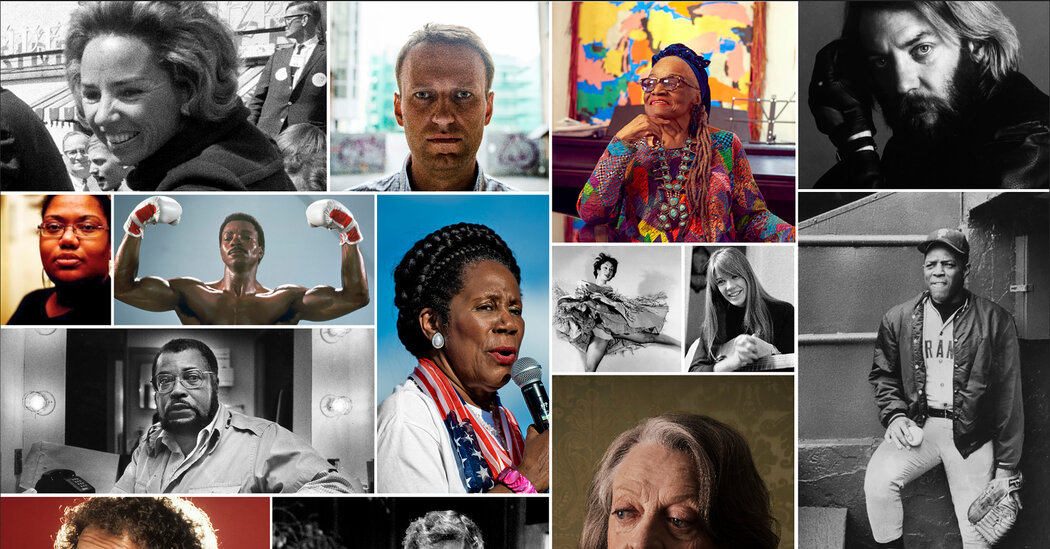Among the notable figures who died in a sometimes polarizing 2024, many championed justice, equal rights and political freedom.
In a year saturated with politics in an ever more polarized world, where the obituary many feared they’d be reading would be that of democracy itself, one death seemed to encapsulate the historical moment we’re in: that of Aleksei Navalny.
A man of courage who championed democracy in his native Russia, a country that does all it can to suppress it, Mr. Navalny died in an Arctic prison as he had lived: as a ceaseless foe of authoritarianism and the persistent nemesis of one of its most intractable practitioners, Vladimir Putin.
Mr. Navalny’s death, at 47 — coming after years of arrests, beatings and a near-fatal poisoning — set off a global wave of grief and anger and did precisely what he would have wanted it to: galvanize his fellow resisters to redouble their resolve.
Mr. Navalny, of course, was not a lone figure in the struggle between democracy and the iron hands that repudiate it. And he was not the only righteous dissident to die in 2024. He had a counterpart, albeit of an earlier generation, in Nijole Sadunaite, a Lithuanian Roman Catholic nun who took on Soviet totalitarianism in the depths of the Cold War. For years, she too had known the inside of a cold Siberian cell.
Half a world away, Shih Ming-teh died on his 83rd birthday, more than 60 years after he began agitating for democracy in a then-dictatorial Taiwan. He paid dearly for his political passion: torture and 20 years in prison, 13 of them in solitary confinement, under a repressive regime that history ultimately swept away. “I’m someone who never had a youth,” he said.
And in an emerging era in which the threats to free and open societies can be more insidious, Shafiqah Hudson found her mission in the dark corridors of the internet: ferreting out trolls peddling lies and misinformation on social media sites. Her efforts may have been “an endless game of Whac-a-Mole,” as Penelope Green wrote in Ms. Hudson’s obituary, but they nevertheless “added up to an early and effective bulwark against misinformation that can threaten democracy.”
